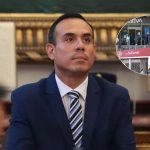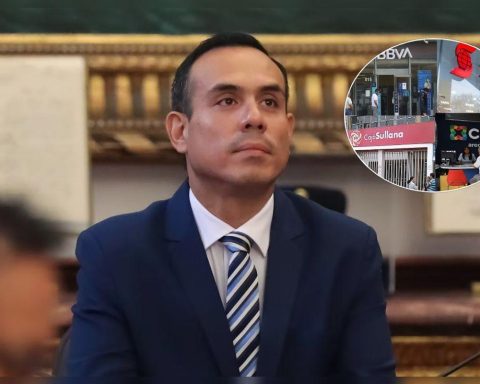In an intense debate, which practically included interventions by pro-government senators -and some from the opposition-, the Senate rejected the nomination of the lawyer and head of the Legal Department of the Public Ministry, Martha Herrera –the candidate of the Minister of the General Secretariat of the Presidency (Segpres), Ana Lya Uriarte–, to be the next National Prosecutor.
Uriarte’s negotiations in Congress did not work out and the Upper House rejected the nomination of the President gabriel boric with 26 votes in favor, 11 against and nine abstentions. For its approval it required 32 votes.
You may also like:
In the favorable votes, there were senators from the ruling party, from the DC and some from Chile Vamos, as Philip Kast (Evopoli). The rejections came from the opposition, such as the UDI bench – they had already advanced it a few days ago.
Among the abstentions there was a pro-government vote: that of Senator Alfonso de Urresti (PS), who expressed criticism of Herrera this Monday in the Senate Constitution Commission, where the then aspiring National Prosecutor made her presentation.
The other abstentions were from the independent john castro and opposition representatives.
Let us remember that before the vote, the Senate Constitution Commission heard Herrera’s presentation. That instance issued a negative report, with four votes against and one in favor, from the senator and president of the commission, Matthias Walker (Democrats).
With the rejection, the law mandates that the quina –already without Herrera– go back to where it originated: the Supreme Court. Here they will have to complete the five candidates with one of those who did not make it to the starting five. After that, the President is officiated gabriel boric so that he chooses a name again, the one that has to go through the final filter of the Senate again.
This is the second time that the Senate has rejected a nomination by the President for National Prosecutor. On the previous occasion, the Upper House declined the appointment of Jose Morales.
“Decision Making” and “Abbott Continuity”
In the discussion in the Chamber, Senator Rodrigo Galilea (RN) questioned Herrera because he was in “decision-making” at the Prosecutor’s Office for “many years.”
“She is far from being a minor official in the National Prosecutor’s Office. She accumulates highly relevant positions: head of the Legal Unit, head of the Anti-Corruption Unit, head of the Integrity System Coordination System and also spokesperson,” Galilea said.
“Having been in the decision-making of the Prosecutor’s Office (…), if in 10 years, those of her who have been part of this leadership group, the Prosecutor’s Office, the Public Ministry have only decreased in their indicators, I obviously I have reason to worry,” added the parliamentarian.
Earlier, in the Constitution Commission, Senator De Urresti described Herrera as a continuation of the criticized former National Prosecutor George Abbott.
“Is there any doubt that she is not the continuation? If she was the right hand, she was in charge of the Anti-Corruption Unit, she was the spokesperson for prosecutor Abbott and we saw him permanently with her. Therefore, the important thing here is to define the relevance it has this charge to society,” he said.
Other actors have also pointed to Herrera as a continuation of Abbott. This has been the case of the bench of senators from the UDI and the National Association of Officials of the Public Ministry (Anfumip).
This last group issued a statement on December 14 rejecting Herrera’s nomination as the new National Prosecutor. In the text, they indicated that she was a participant and trusted adviser to Abbott’s “disastrous administration.”
Likewise, they maintained that Herrera “does not meet a profile of independence” and that she maintains internal commitments with current regional authorities and executives who “will remain with her at the head of the Public Ministry, perpetuating the current situation of stagnation, lack of modernization and innovation that currently characterizes the institution”.
Room discussion
The debate was intense because, before the vote, the different ruling party senators questioned Herrera’s critics –both pro-government and opposition– who compared her to the outgoing Jorge Abbott, assuring that they listened to her and qualified her background in a good way to occupy the position.
In addition, they emphasized the tone of the debate –something that, according to some, “they had never seen”– and, although from the first hours of today the Government had begun to chew defeat, pro-government parliamentarians sought to remove the focus of attention to the Segpres minister, in an attempt to shift the responsibility to the Corporation itself and not to La Moneda. Despite this, the categorical rejection of the vote inevitably placed the Segpres minister as the main loser, by dragging the Government into a new failure.
There were other attempts to gain time while waiting to add more votes in favour, such as the controversy generated by the senator Francisco Huenchumilla (DC), when describing as unconstitutional the attribution of the Senate Constitution Commission – the one that issued an unfavorable report to Herrera – to question the suitability of his position.





















